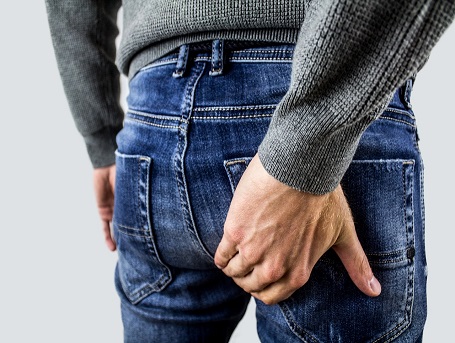Your Comprehensive Guide to Hemorrhoid Care and Management
Hemorrhoids, often referred to as piles, are swollen veins located around the anus or in the lower rectum. This condition is quite common, affecting millions of people worldwide. There are two main types of hemorrhoids: internal, which occur inside the rectum, and external, which develop under the skin around the anus. While hemorrhoids are generally not life-threatening, they can be uncomfortable and cause significant discomfort if not managed properly.
Causes and Risk Factors
Several factors can contribute to the development of hemorrhoids. A primary cause is increased pressure in the lower rectum due to straining during bowel movements, prolonged sitting, or chronic constipation. Other contributing factors include obesity, pregnancy, low-fiber diets, and aging, which can weaken the veins over time. Understanding these risk factors is crucial in preventing the occurrence and worsening of hemorrhoids.
Symptoms to Watch For
Symptoms of hemorrhoids vary depending on their type and severity. Common signs include:
-Pain and Discomfort: External hemorrhoids can cause significant pain and discomfort, especially during bowel movements.
-Itching or Irritation: The skin around the anus may become itchy or irritated.
-Swelling: External hemorrhoids can cause noticeable swelling around the anus.
-Bleeding: Bright red blood on toilet tissue or in the toilet bowl may indicate hemorrhoids, particularly internal ones.
-Lumps: A sensitive or painful lump near the anus may be a thrombosed hemorrhoid.
If you experience severe pain or excessive bleeding, it is important to seek medical advice as these could indicate more serious conditions.
Effective Hemorrhoid Management
Managing hemorrhoids involves a combination of lifestyle changes, home remedies, and medical treatments. The severity of your symptoms will typically dictate the approach you choose.
Lifestyle Modifications
Implementing certain lifestyle changes can significantly reduce the frequency and severity of hemorrhoid flare-ups:
-Increase Fiber Intake: Eating a high-fiber diet can soften stools and increase their bulk, reducing straining. Foods rich in fiber include fruits, vegetables, whole grains, and legumes.
-Stay Hydrated: Drinking plenty of water can help prevent constipation and ease bowel movements.
-Exercise Regularly: Physical activity can help regulate bowel function and reduce pressure on hemorrhoidal veins.
-Avoid Straining: Go to the bathroom when you feel the urge and try not to strain during bowel movements.
-Limit Sitting Time: Prolonged sitting, especially on the toilet, can increase pressure on the veins.
Home Remedies
Several home remedies may alleviate hemorrhoid symptoms:
-Warm Baths: Soaking in a warm bath several times a day can reduce discomfort and swelling.
-Cold Compresses: Applying ice packs or cold compresses to the affected area can help decrease swelling.
-Proper Hygiene: Gently cleaning the anal area with mild soap and water can prevent irritation and infection.
Medical Treatments
For persistent or severe hemorrhoids, medical treatments may be necessary. These include:
-Over-the-Counter Creams and Ointments: Products containing hydrocortisone or witch hazel can provide temporary relief from symptoms. The use of a hemorrhoid ointment can be particularly effective in reducing pain and swelling.
-Minimally Invasive Procedures: If symptoms do not respond to home treatments, procedures such as rubber band ligation, sclerotherapy, or infrared coagulation may be recommended by a healthcare professional.
-Surgery: In cases of large or severe hemorrhoids, surgical options such as hemorrhoidectomy or stapled hemorrhoidectomy may be considered.
When to See a Doctor
While many cases of hemorrhoids can be managed with home treatment and lifestyle changes, it is important to consult a doctor if:
– You experience severe pain or excessive bleeding.
– Symptoms persist despite treatment.
– You notice changes in bowel habits or stool consistency.
– You have a family history of colorectal cancer or other gastrointestinal conditions.
Early intervention can prevent complications and ensure appropriate treatment.
Prevention Tips
Preventing hemorrhoids involves maintaining a healthy lifestyle and being mindful of bowel habits. Here are some tips to help prevent hemorrhoids:
-Adopt a High-Fiber Diet: Aim for at least 25-30 grams of fiber per day to maintain regular bowel movements.
-Stay Active: Regular exercise can help maintain a healthy weight and reduce pressure on hemorrhoidal veins.
-Manage Stress: Stress management techniques such as yoga or meditation can improve digestive health.
-Use the Bathroom Regularly: Don’t ignore the urge to go to the bathroom, and try to establish a regular routine.
-Avoid Heavy Lifting: Lifting heavy objects can increase pressure in the abdomen, exacerbating hemorrhoids.
Conclusion
Hemorrhoids are a common condition that can cause discomfort and inconvenience. Understanding the causes, symptoms, and effective management strategies is key to reducing their impact on your daily life. By making lifestyle modifications, utilizing home remedies, and seeking medical treatment when necessary, you can effectively manage hemorrhoids and prevent future occurrences.
Incorporating preventive measures, such as maintaining a high-fiber diet and staying active, can go a long way in ensuring your comfort and well-being. Remember, if symptoms persist or worsen, it is important to consult a healthcare professional for proper diagnosis and treatment. With the right approach, you can take control of your health and minimize the impact of hemorrhoids on your life.
